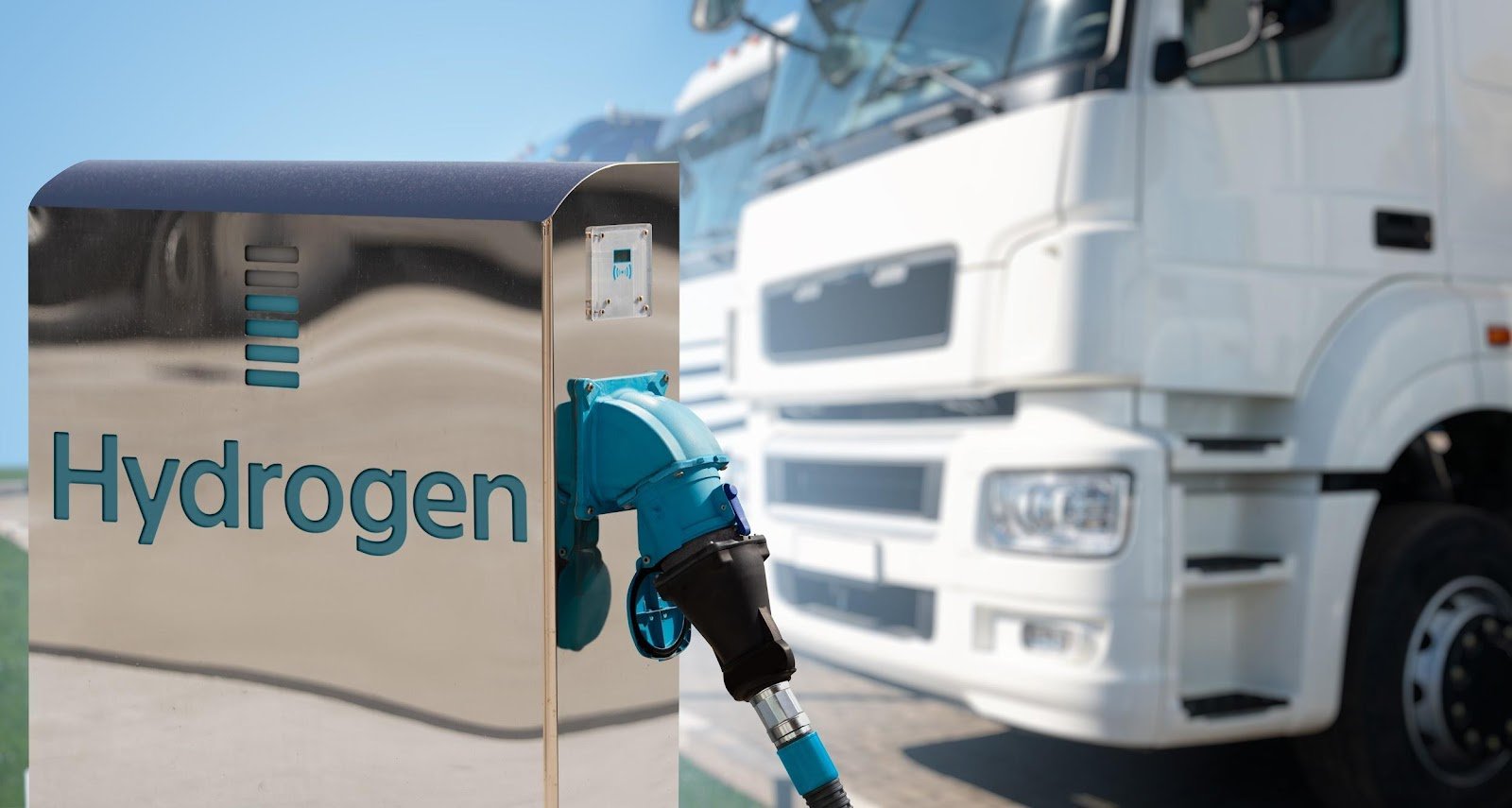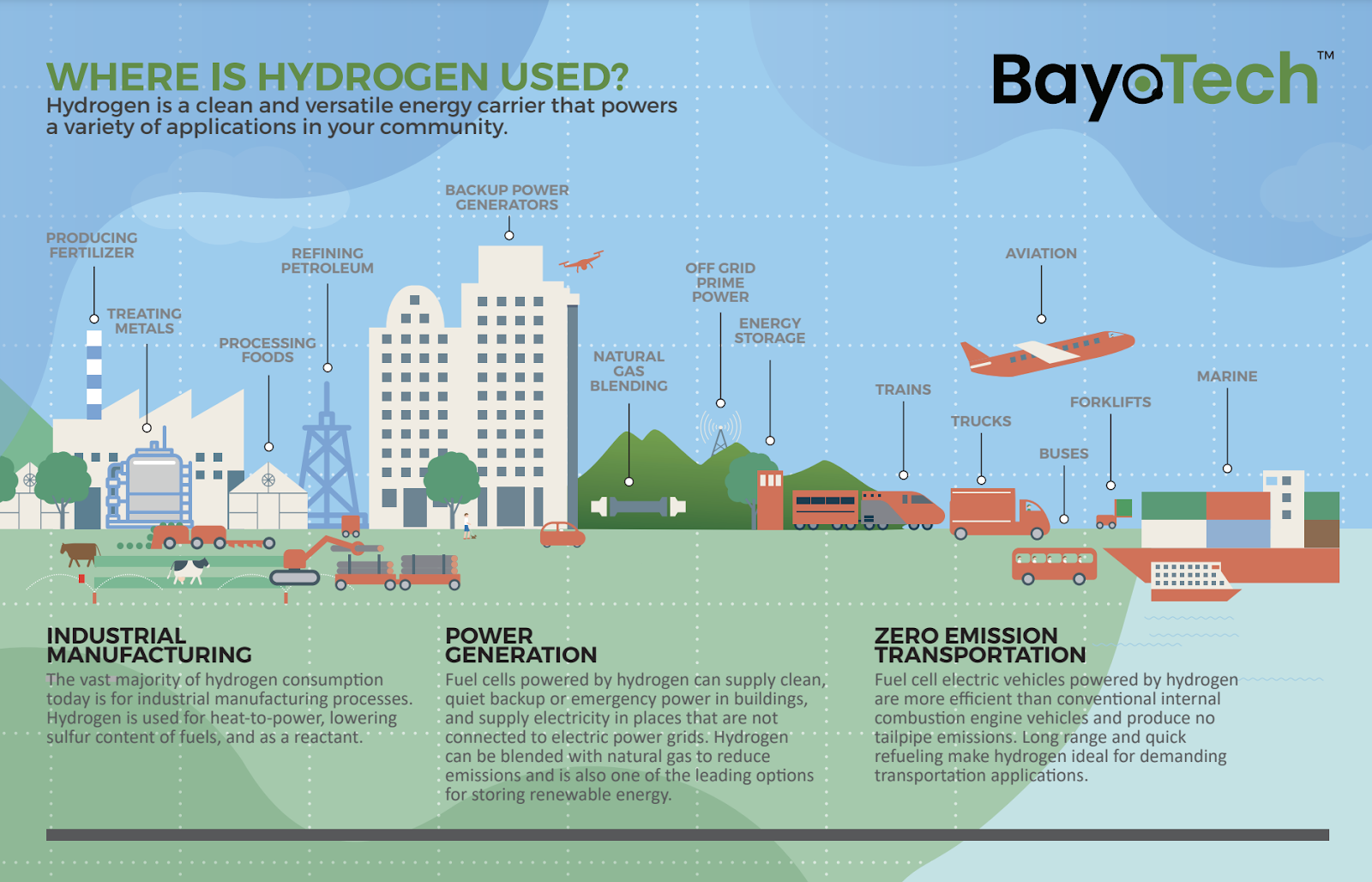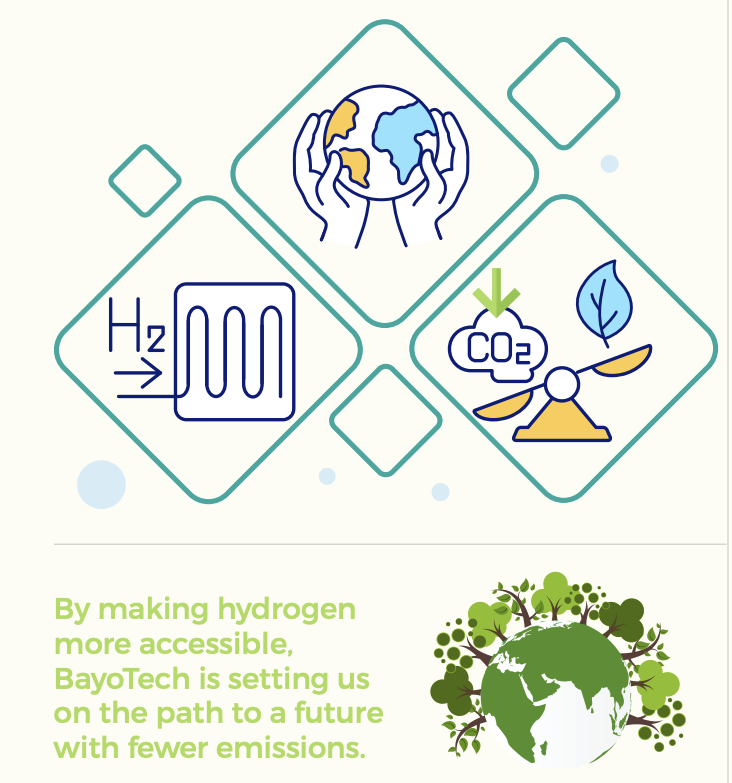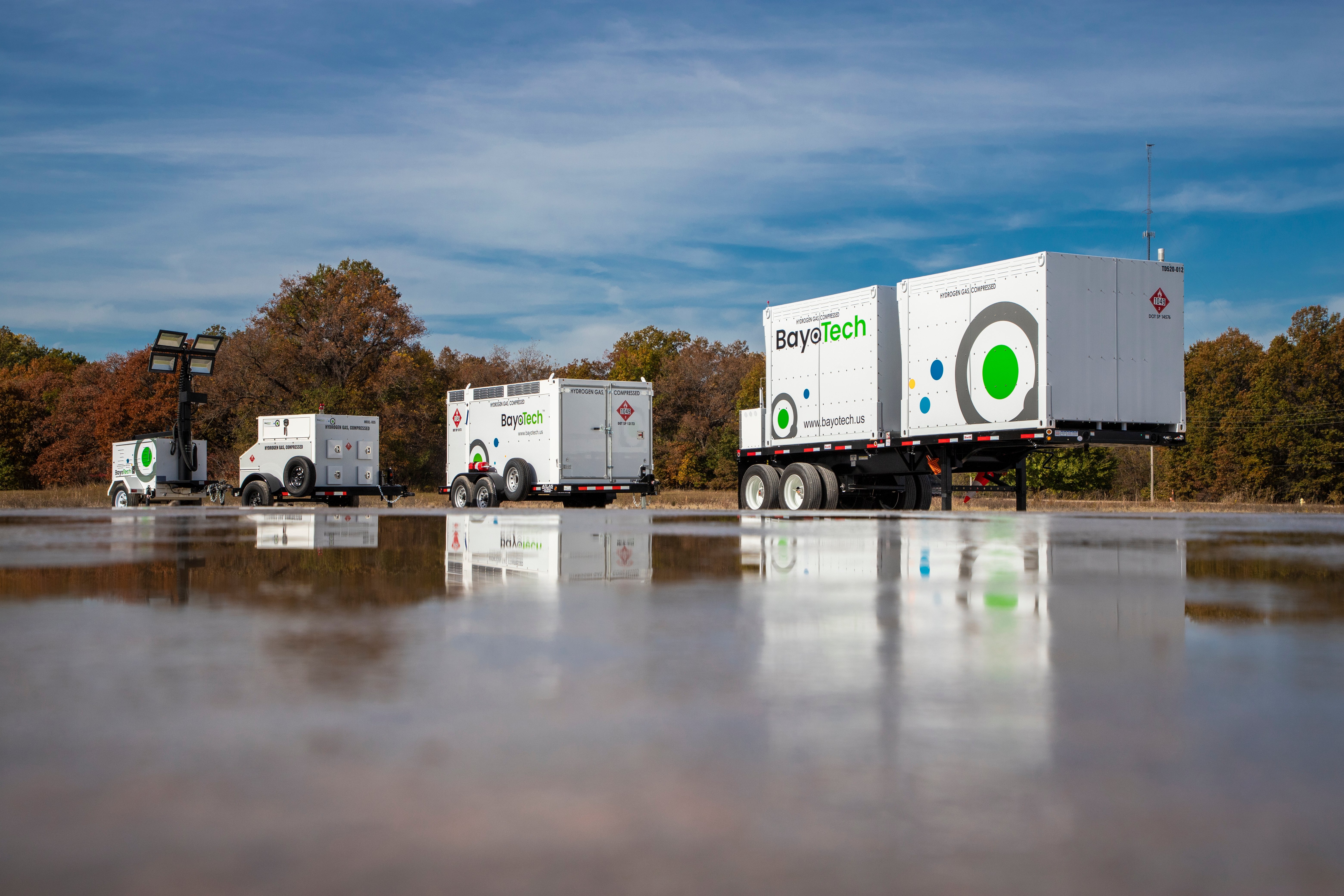Thinking a single energy option is going to solve the climate change problems we are currently facing is naive. In the fight against climate change battery electric has been moving fast and solving many problems, but we need to recognize it’s not the best, or only fit for everything. In this blog, we'll be going over situations where hydrogen might be a better fit.
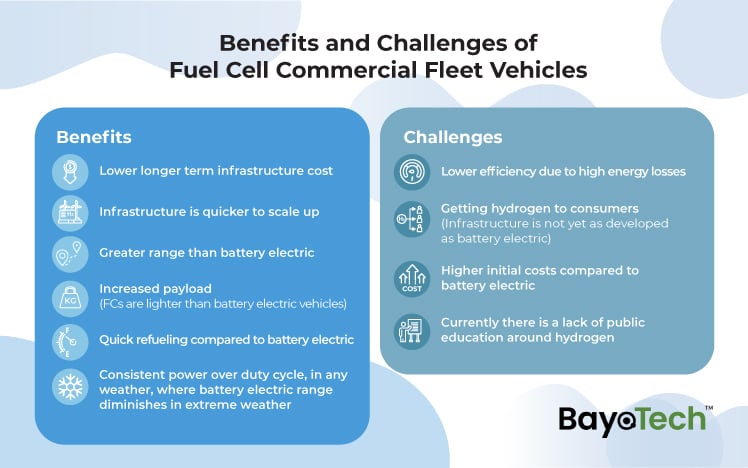
Fleet Vehicles
When choosing a hydrogen fuel cell compared to battery electric, battery weight, range and fueling time all are major contributing factors to making the decision. Hydrogen can especially win in commercial fleets, trucks and buses since these applications require driving over long distances, requiring more range, and longer operational hours per day.
Trucks
Hydrogen-powered trucks are especially fitting for long distances and heavy, energy-demanding assignments. Fuel cell systems are lighter than batteries, an important consideration for trucking companies seeking to maximize payload. Fuel cell trucks also are refueled quickly, ensuring the truck is on the road generating revenue for the fleet operator.
A challenge right now is the fact that the hydrogen refueling infrastructure for long-haul heavy vehicles is yet to be developed. There are interim solutions for this, such as BayoTech’s transport trailer. Hyzon, a global supplier of zero-emissions hydrogen fuel cell powered commercial vehicles, wanted to conduct testing but there was no readily available source of hydrogen nearby their testing facility. With the hydrogen space still growing it was difficult for them to find a dependable source of hydrogen and hydrogen transportation to meet their needs, but solutions like BayoTech’s can provide the hydrogen required.
Buses
With the fast fueling and longer range that comes with hydrogen-electric buses they are a successful replacement for traditional diesel models. The transition can be easily carried out without significant changes to routes, schedules, or existing depot operations. Similar to diesel and CNG buses, FCEBs can be refueled quickly at any bus fueling station or depot designed with the addition of delivered hydrogen or onsite hydrogen production.
Fuel cell buses are also well-suited for long routes and colder weather with higher power requirements than transit agencies require. Extreme temperatures can deplete batteries quickly, reducing range, whereas hydrogen fuel cells operate well in all weather conditions.
Launching a start-up hydrogen project needs planning though, as there might be timing issues with getting all the infrastructure ready. In the case of Champaign-Urbana Mass Transit District (MTD), BayoTech was able to successfully provide hydrogen fuel and fueling infrastructure to bridge the gap in getting two hydrogen fuel cell buses up and running, when there was a timing challenge aligning the bus delivery with the hydrogen production station construction.
Taxis/Delivery Services
Similarly to trucks and buses, fleet vehicles such as taxis and rideshare vehicles also stand to benefit from implementing hydrogen as they require long-range, intensive use and short recharging/refueling time
Hydrogen powered vehicles provide operational efficiency compared to internal combustion vehicles, as well as a much faster refill time compared to battery electric. They can go 500-700 kilometers before needing a refill, which also takes only five minutes - reducing the amount of idle and inoperable time.
Stationary Backup
Large tech companies have been setting goals to reduce emissions that come from powering up servers. To become carbon neutral backup power will need to come from sources other than fossil fuels. Telecom companies and critical infrastructure services can use fuel cells to provide emergency backup power during outages, while decreasing the economic and productivity losses during other grid instabilities. Today, BayoTech supports hydrogen fuel cell backup power systems at more than 1,400 critical infrastructure sites across the US.
Industrial Processing
Hydrogen is already used in a wide variety of industries, such as food processing, oil refining, ammonia production, and methanol production. Other uses are being explored, such as a replacement for coal and other carbon emitting fuels in glassmaking, steelmaking and making concrete. These are all carbon intensive processes that are suited for decarbonization via hydrogen.
As hydrogen production, distribution and equipment manufacturing increases, costs are estimated to decrease by up to 50% by 2030 for a wide range of applications, making hydrogen financially competitive with other low-carbon alternatives and, in some cases, even conventional options.
Want to learn more about the power of Hydrogen? Watch our short video now!
Other Applications
There are many other applications of hydrogen that are being pilot tested and even implemented right now. Currently, more than 50,000 hydrogen fuel cell forklifts are now in warehouses, stores, and manufacturing facilities throughout the US. These forklifts can refuel in minutes, with increased performance, and zero emissions.
This report explores alternatives to current conventional carbon emitting aircraft. Fully battery electric aircraft could enable completely emission-free flight over the shortest distances but hydrogen could be used to electrify aircraft with fuel cells over mid-range distances or through direct combustion.
Blending natural gas with hydrogen produces a cleaner burning fuel and is being explored as a viable alternative for heating homes and businesses. Gas utilities continue to advance hydrogen pilot projects as the industry focuses on long-term solutions for decarbonizing pipeline networks by gas blending (20:80 hydrogen to natural gas blend).
Final Thoughts
There is space for both hydrogen and batteries to replace current technologies. Each has current limitations, but as the technologies scale and mature - they will both become more prominent ways of powering numerous applications.
Even though we’ve seen immense success with batteries, we know that we cannot solely rely on them. According to estimates, battery production capacity currently under construction will allow the production of the equivalent of 40 million electric vehicles annually by 2028 but there are over one billion vehicles on roads today and many other applications that also need to be decarbonized.

